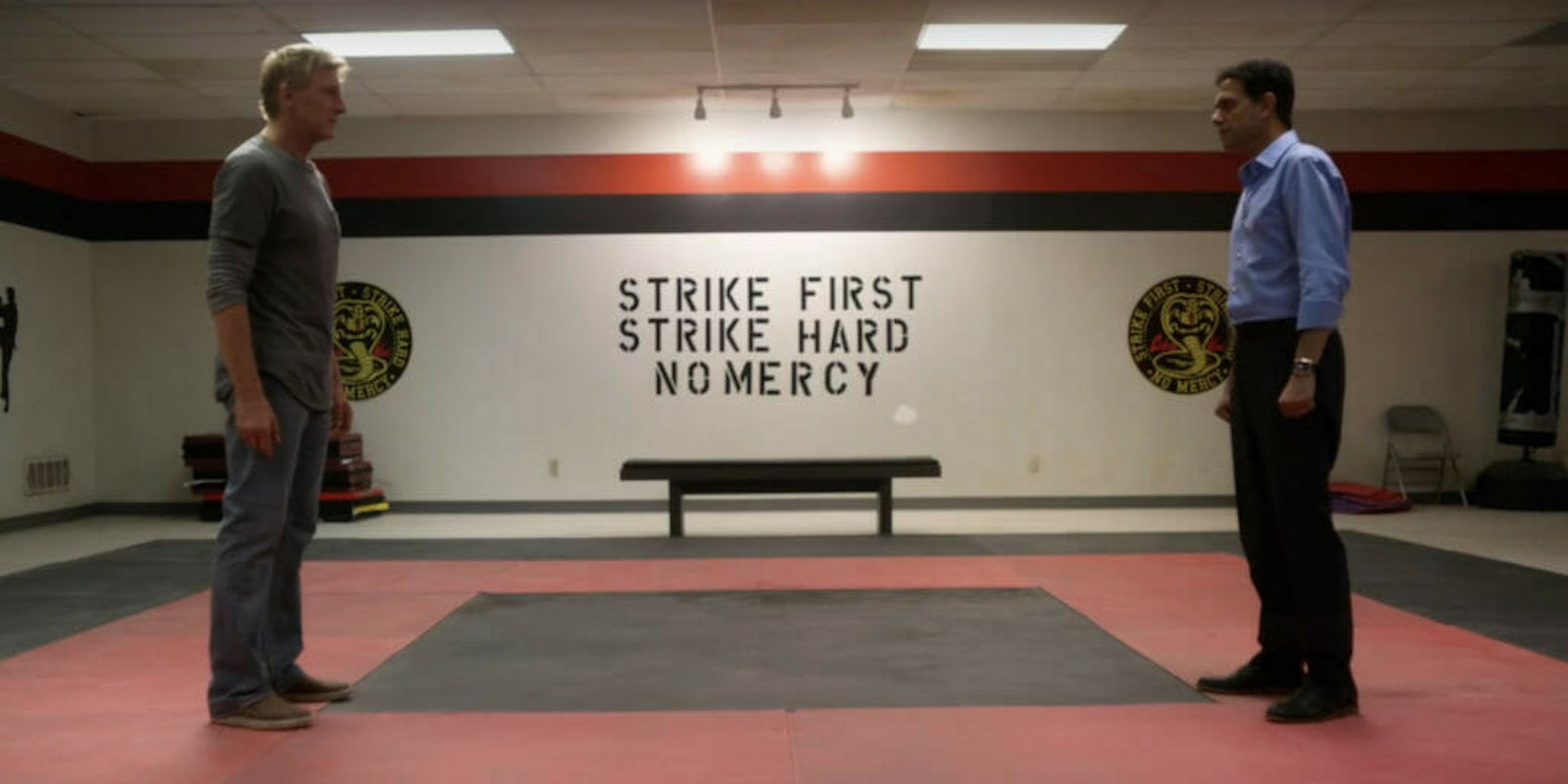YouTube is taking a different approach to its original programming—there will be less of it, and eventually, much of it is going to be free to watch.
According to the Hollywood Reporter, YouTube is going to decrease the number of original scripted shows it creates beginning in 2020 while allowing anybody to watch them, regardless of whether viewers pay $12 per month for YouTube Premium.
The change is seen as a “serious budget reduction,” and people are questioning whether YouTube still has the mindset or desire to compete with all of the original programming offered by Netflix or Amazon Prime.
Though YouTube Premium scored a big hit with Cobra Kai—a reboot of the Karate Kid franchise which will see a second season—and produced well-received series like the Anna Akana-led Youth and Consequences and the LeBron James-produced Best Shot, its strategy seems to be shifting.
“Other platforms have had traction with scripted, but they don’t feel like there’s an opening for them,” one anonymous producer told Hollywood Reporter.
According to the report, the YouTube originals budget is thought to be hundreds of millions of dollars annually, but that’s still dwarfed by the supposedly several billion dollars Netflix and Amazon have been spending each year.
YouTube—which began its subscription service, originally titled YouTube Red, in 2015—is also shifting its thinking about paid subscriptions. Instead of charging people to watch those original series, the platform reportedly thinks serving ads is a more effective move.
“If you look at our originals over the last few years, our main goal was to drive subscribers to YouTube Premium,” Robert Kyncl, YouTube’s chief business officer, told Hollywood Reporter. “But through experimentation, we’ve also learned that we can make a lot of the projects work incredibly well when we make them available free to users.”
Though YouTube has roughly 2 billion users, it’s unknown how many people subscribe to YouTube Premium. The Hollywood Reporter wrote, “early reports about its premium video offering … suggested that was slow to catch on with viewers.”
READ MORE:


